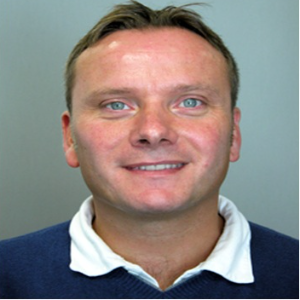Title : Exploring the value of an extended theory of planned behaviour model: To explain nurses’ and health care assistants’ instrumental research utilisation intentions in clinical practice
Abstract:
The project focused on two distinct areas, firstly an evaluation of the usefulness of an extended model of intentional behaviour, based on the Theory of Planned Behaviour (TPB), to explain Nurses’ and Health Care Assistants’ (HCAs) guideline implementation behaviour; and secondly, a comparison of Nurses’ and HCAs’ intentions to implement a repetitive guideline ‘checklist’ behaviour – the ‘Care Round Checklist’. An intentional model of behaviour was developed by Systematic Review and Narrative Synthesis of available literature (Appleby et al, 2016); methods used in the development of the model will be discussed. An extended TPB model was operationalised and tested by conducting 30 semi-structured interviews and development of a questionnaire. Nurses’ and HCAs’ intentions were evaluated in one large,UK based, acute teaching hospital. The extended TPB model lacked sophistication in explaining intention. The model should be developed and further tested to explore its explanatory value. Nurses and HCAs role,explained differences in intentions. Nurses ‘attitude’ and ability to ‘control’ their working environment and HCAs ‘attitude’ and practice ‘habits’ determined their intention to implement the care round checklist. The care round checklist should be re-designed to reflect these role differencesand future implementation and assessment of basic care.
Takeaway Notes:
• Successful guideline implementation is dependent on its relevance and usability
• Cross-discipline implementation of guidelines can dilute intention
• Beliefs, which underpin intention, should be generated to facilitate and target change in implementation behaviour
• For the effective implementation of care rounds, the checklist should be re-designed to reflect differences in ‘role’. The National Nursing Research Unit (2012) recognizes the problem of implementing care rounds when there is a misunderstanding as to who is responsible for implementation, and for which patients.
• This will help implementers of guidelines to consider the effect of role differences and checklist design
• The concept of ‘role differences’, and tailoring guidelines to improve implementation relates to all Health Professional groups (Rycroft-Malone et al, 2010;Gillespie and Marshall, 2015)
• Understanding underlying beliefs can help to focus the practical challenges of ‘implementation’. In this study, for nurses, being able to effectively ‘delegate and communicate’ had an effect on their ability to ‘control’ the implementation of the guideline and their intention
• If guideline implementation necessitates a pattern of ‘repeated behaviour’, this can be de-motivating for nurses. Therefore, the frequency in which the care round checklist is implemented should also be reviewed.



